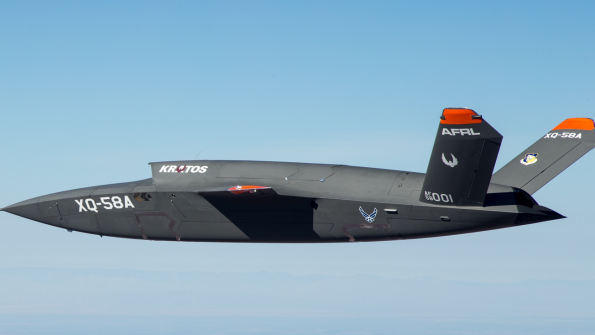
The U.S. Air Force completed a second round of Skyborg tests in March on a new flying testbed aircraft, but further flights are on hold due to schedule disruption caused by the response to the COVID-19 pandemic, the service announced on April 22.
Five flights in March on the jet-powered BVM Renegade “proved the viability” of the Skyborg program’s autonomous, machine-learning software code on a slightly larger aircraft than used in the first round of flight tests last summer.
Flight testing is now on hold for Skyborg while the Emerging Technology Combined Test Force at Edwards Air Force Base, California, adjusts to the impact of the coronavirus pandemic.
The unmanned Renegade replaced the original Skyborg testbed called Shockwave, which was slightly smaller and slower. Both testbed aircraft are based on off-the-shelf commercial products in the jet-powered remote-control aircraft market. The Renegade, which resembles a miniature Douglas A-4, has a top speed of 200 kt.
Skyborg is the Air Force’s effort to develop a software tool to develop autonomous capabilities, including the ability for an aircraft’s computer to learn new maneuvers as it flies. The goal now is to deliver an operational Skyborg aircraft by 2023.
The Air Force Research Laboratory plans to host Skyborg technology on multiple testbed aircraft. Several aircraft, including the Kratos XQ-58 and an unmanned version of the Lockheed Martin F-16, have been linked to an operational version of the technology.





